#Government
Steel, Aluminum Tariffs Might Not Happen, Trump Says
As the U.S., Mexico, and Canada enter into the final day of the seventh round of NAFTA renegotiation talks, President Trump is offering his neighbors an incentive for signing a favorable deal.
“Tariffs on Steel and Aluminum will only come off if new & fair NAFTA agreement is signed,” Trump tweeted on Monday morning.
The president’s surprise announcement of tariffs on imported aluminum and steel late last week — 10 percent on the lighter metal, 25 percent on the heavier one — sent automaker stocks tumbling. Hoping to quell fears of new vehicle price increases, General Motors and Toyota released statements claiming the bulk of their aluminum and steel flies a red, white, and blue flag.
It's Looking Like Virginians Won't Get a Chance to Legally Drink and Drive at Home
A bill seeking to amend Virginia’s DUI laws passed through the state Senate last month, but don’t expect the law to make it onto the books. The legislation aimed to make intoxicated driving legal if a driver performed the boozy feat on his or her own private property, with all other existing laws remaining the same.
As you might expect, this didn’t go over well with law enforcement, politicians, safety advocates, and various other concerned citizenry.
German Court Says Towns Can Officially Ban Diesel Vehicles Whenever They Want
Thanks to years of governmental promotion, Europe is still awash with diesel-powered passenger vehicles. However, in the wake of emission scandals and research suggesting diesel fumes might not be all that great to inhale, the region has changed its mind. It has gotten to a point where entire countries are now aiming to ban all internal combustion engines as local municipalities try to put the kibosh on diesels as soon as possible.
In Germany, birthplace of the diesel engine, this led to many asking if towns even had the right to regulate what people drove. According to a recent ruling from the nation’s highest administrative court, they absolutely do. With a precedent now set in Europe’s auto manufacturing hub, citywide diesel bans are likely to catch on — not only in Germany, but across the continent. Our condolences if you’re living east of the Atlantic and wanted to sell your diesel secondhand.
After a Year's Delay, U.S. Decides All Electric Vehicles Must Make Noise by 2020
First ordered by Congress in 2010 and delayed endlessly ever since, the U.S. Department of Transportation has finalized a date for the end of “noiseless” electric vehicles and hybrids: September 2020.
That’s a year after the previous deadline, announced in the final days of the Obama administration in November 2016. The National Highway Traffic Safety Administration subsequently froze the date in order to hear arguments from automakers. With that process now wrapped up, the new (and unchanged) rules mean any four-wheeled vehicle with a GVWR of less than 10,000 pounds must emit a pedestrian-warning noise at speeds below 18.6 miles per hour.
Enjoy the “silence” while you can.
Two New Models Coming to Save GM Korea: Report
The home of America’s smallest General Motors vehicles is bleeding sales and cash, forcing the automaker into harsh measures in an attempt to save its South Korean operation. Many fear last week’s plant closure announcement is just the beginning of an eventual exodus from the Korean market. There’s three remaining assembly plants, each sitting on shaky financial ground.
Today brings encouraging news, however. Two reports paint a picture of GM in triage mode, doing everything in its power to stem the bleeding — of both money and customers.
Can Automakers Convince Germany to Skip the Pending Diesel Bans?
Europe’s love affair with diesel engines is fading faster than a VHS tape left sitting beneath the summer sun in a car’s rear window. Encouraged by automakers, European governments incentivized diesel cars in the 1990s by taxing them at a far lower rate and suppressing the price of the fuel they burned. Studies came out claiming that diesel’s below-average CO2 emissions could even help with air quality. By 2012, diesel models made up 55 percent of Europe’s passenger vehicle market.
Things certainly have changed. Now concerned primarily with smog-producing NOx output, health and safety advocates have called diesel a menace to society. The EU has been pressing automakers to abandon the fuel by adopting much more restrictive emissions regulations for passenger cars. Volkswagen’s emission scandal further complicated things, prompting cities to call for a total ban on certain vehicles.
However, Germany still has to decide whether the mandates are even legal — and the decision comes this Thursday.
White House At Least Considering Increasing Gas Tax, Needs to Consult Congress
The United States’ 18.4-cent-per-gallon tax on gasoline and 24.4-cent tax on diesel hasn’t changed since 1993. Despite this, the opinion that it should be hiked as a way of funding public works was nowhere near the White House’s official infrastructure strategy. But Donald Trump isn’t averse to the idea. In fact, he proposed a 25-cent increase to senators during a Wednesday meeting as a possible funding solution.
White House officials claim the president says “everything is on the table” in terms of finding a solution for America’s growing infrastructure problems. But how serious the rest of the Trump administration is about raising the fuel tax is debatable.
Nice Prius - Now Pay Up: Maine to Green Car Owners
Here at TTAC, we sometimes tap sister publications when a story arouses our interest. This piece, published by Hybrid Cars, details a battle brewing in the rustic state of Maine — one that pits hybrid and electric car owners against a government that says their cars, while good for the environment, aren’t good for road upkeep. As cars become greener and gas tax revenues dwindle, this won’t be the last battle.
A proposed new fee for hybrids and EVs in Maine could be the highest in the country, reducing clean vehicle adoption.
The Maine Department of Transportation wants to add an annual registration fee for hybrids and electric vehicles. $150 for hybrids, and $250 for electric models. The DOT is looking to impose the fee because it says drivers of the more energy efficient vehicles aren’t paying their fair share toward road maintenance.
“The owners of these types of vehicles are paying far less in the gas tax than other vehicle owners and they are using the highway system just like any others,” MDOT Manager of Legislated Services Megan Russo told the Portland Press-Herald. “There has got to be a way to try and capture revenue from those drivers who are using our road system.”
Here Come the Roads: President 'Big Daddy' Trump Unveils Infrastructure Plan
Few things are sexier than a new road. The scent of fresh tar, smooth pavement that’s still warm to the touch — it’s an absolute feast for the senses. After roughly a year of waiting, President Trump finally seems poised to deliver on a bunch of them. The White House has just offered Congress a 53-page report detailing exactly how to rattle loose $1.5 trillion in investments into the country’s ailing infrastructure.
Maybe “poised” is the wrong word to use; how about we just say that he’s been interested in the idea that somebody should build them.
Expect Democrats to complain that the plan totally fails to create a dedicated funding stream to address the infrastructure issue and Republicans to gripe about how the small federal investment, set at $200 billion, is still far too large. It’s a beautiful system we have here.
Green for Green: California Governor Outlines $2.5 Billion Electric Vehicle Push
If California’s Jerry Brown is known for anything, it’s for continuing his familial legacy of governing the region for a weirdly long period of time and pressing for the proliferation of electric vehicles. While not all of the state’s EV initiatives have gone without a hitch (the LAPD’s unused fleet of battery powered BMWs springs to mind), Brown remains essential in keeping his neck of the woods on the forefront of alternative energy adoption.
Currently, California plans to place five million zero-emission vehicles on the road by 2030. The state previously set a target of 1.5 million ZEVs by 2025. That’s a massive increase, especially considering California only has about 350,000 examples currently plying its roads. Don’t worry, Brown has a plan to stimulate sales: $200 million worth of subsidies per year for the next eight years.
Senate Fumbles With Self-driving Legislation
Bipartisan legislation to “promote the safe development of autonomous vehicles” is currently being held up by a trio of Democrats, according to U.S. Senate Commerce Committee Chairman John Thune. While much of Congress is hoping to push the AV START Act through, Sen. Dianne Feinstein and two colleagues have blocked unanimous consent — stalling the bill’s swift progress by forcing a floor vote.
Thune, who sponsors Senate Bill 1,885, told reporters he hoped Feinstein and the other Democrats would see the light. “We could save a lot of lives,” Thune said, adding that 94 percent of car crashes are caused by human error. “It is cutting-edge technology, transformational in terms of the economy.”
However, the opposition isn’t convinced autonomous vehicles are at a point where it’s safe to roll them out en masse on public roads.
Here's What Chinese Brand GAC Still Needs to Do to Get Into America
Chinese car brand Guangzhou Automobile Group’s showing at the North American International Auto Show made it pretty clear that the manufacturer wants to get into the U.S. market. But, with its earlier deadlines to do so having gone unmet, there is skepticism that it won’t happen by 2019. Is it really possible?
Well, sure, anything is possible. But GAC has a laundry list of obstacles to overcome if it wants to sell cars to Americans in earnest and the clock is ticking. For starters, politicians are starting to get a little testy when it comes to Chinese trade policies, and GAC now finds itself as a focal point on the issue. More importantly, the brand needs a clear-cut path to victory — and we’ve yet to hear one.
LAPD's Multi-million Dollar Electric Fleet Allegedly Goes Unused and Unloved
We know the State of California loves electric cars, but the Los Angeles Police Department may have mixed emotions. Back in June of 2016, the LAPD awarded BMW with a contract to provide 100 battery-powered i3 hatchbacks as part of a plan to enhance its public image. At the time, Los Angeles Mayor Eric Garcetti told the press, “We should be thinking green in everything we do,” adding that the electric BMWs would “also save money and resources.”
Fast forward to 2018 and the contract is beginning to look like a good way to waste millions of dollars. The LAPD agreed to lease the vehicles, effectively doubling its electrified fleet, for three years. The logic was that the gas savings would offset the $1.4 million it would cost the police force to apprehend them from BMW. While that sounds wonderful, there is a problem — the LAPD isn’t driving them.
The GAC Effect: Imported Chinese Automobiles Face Fierce Criticism From U.S. Politicians
At this very moment, Chinese-based automaker GAC has a massive booth in the very center of the North American International Auto Show in Detroit. The company has expressed its intent to start importing its vehicles into the United States in 2019. However, 536 miles away (by car), Washington is bemoaning Chinese trade practices — a topic which might be extremely relevant for Guangzhou Automobile Group in the coming years.
On Wednesday, Democratic U.S. Senator Chuck Schumer and President Donald Trump separately criticized China’s trade policy. For automobiles, this translates into Chinese-built cars incurring a maximum 2.5 percent import tariff upon entering the United States, while U.S.-built cars sent East are hit with an average 25 percent tax.
Fiat Chrysler to Bring Heavy Duty Pickup Production Back to U.S., Shower Workers With Cash
There’s good news this morning for Fiat Chrysler worker in the United States, and it’s also good news for members of the Trump administration.
The automaker has announced plans to sink another $1 billion into its Warren Truck Assembly plant and bring production of its Ram Heavy Duty models to Michigan from Saltillo, Mexico. At the same time, some 60,000 hourly and salaried workers in the U.S. can expect a $2,000 bonus (paid in the second quarter of 2018) in recognition of “their continued efforts towards the success of the company.” The move also means 2,500 previously unannounced jobs for Michigan.
What’s behind all of this sudden goodwill? Recent changes to the country’s tax landscape, FCA claims.
“It is only proper that our employees share in the savings generated by tax reform and that we openly acknowledge the resulting improvement in the U.S. business environment by investing in our industrial footprint accordingly,” said CEO Sergio Marchionne in a statement.
So, how does this production shuffle play out, and what’s the backstory here?



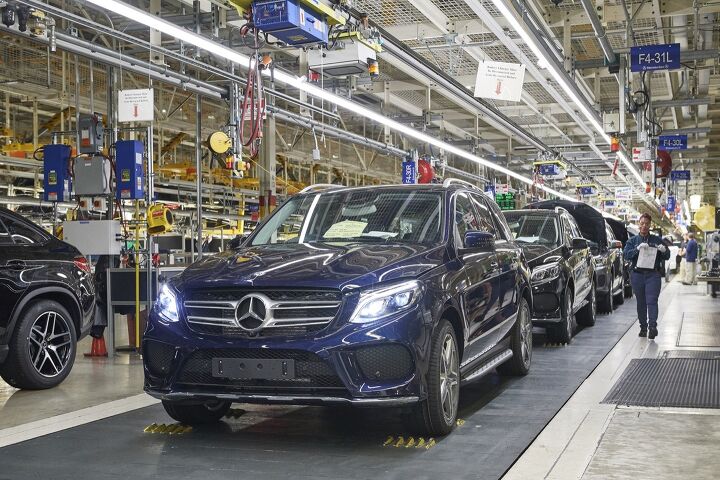

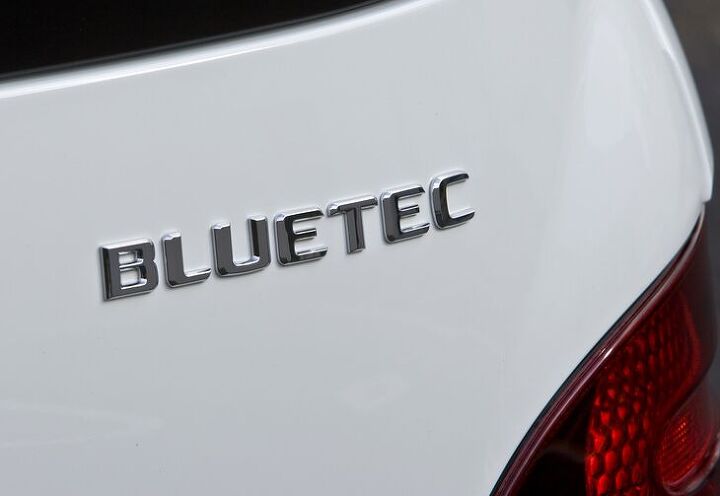
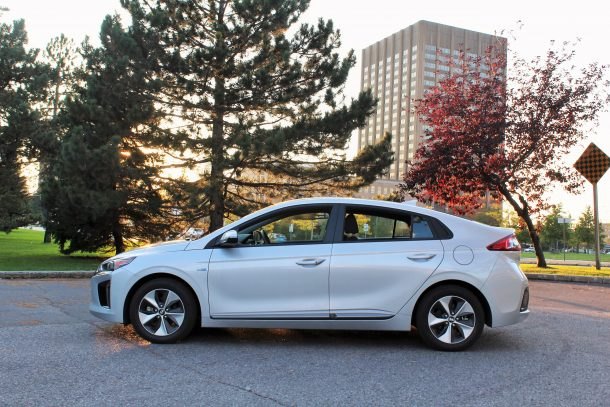




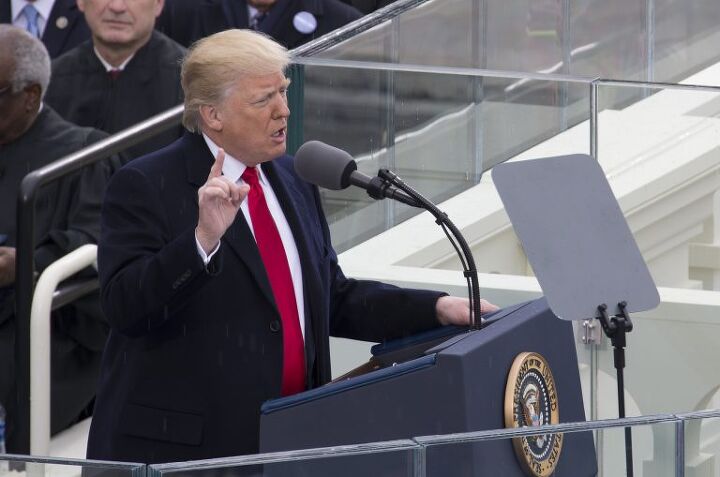



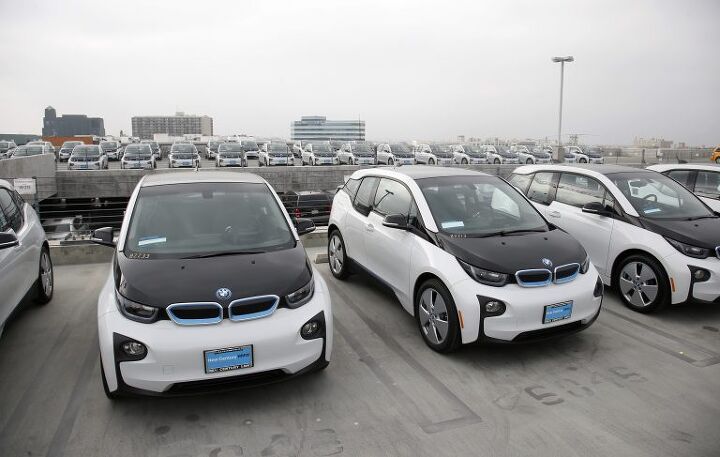

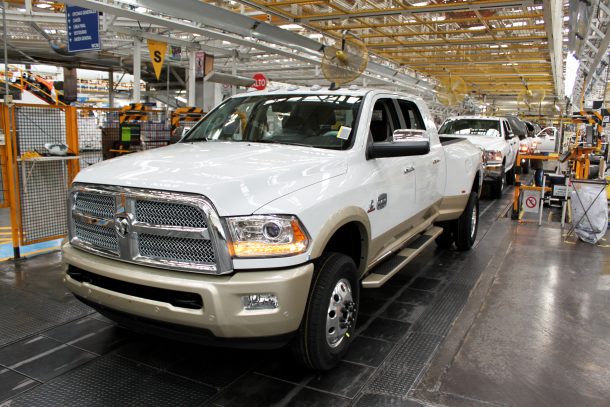












Recent Comments